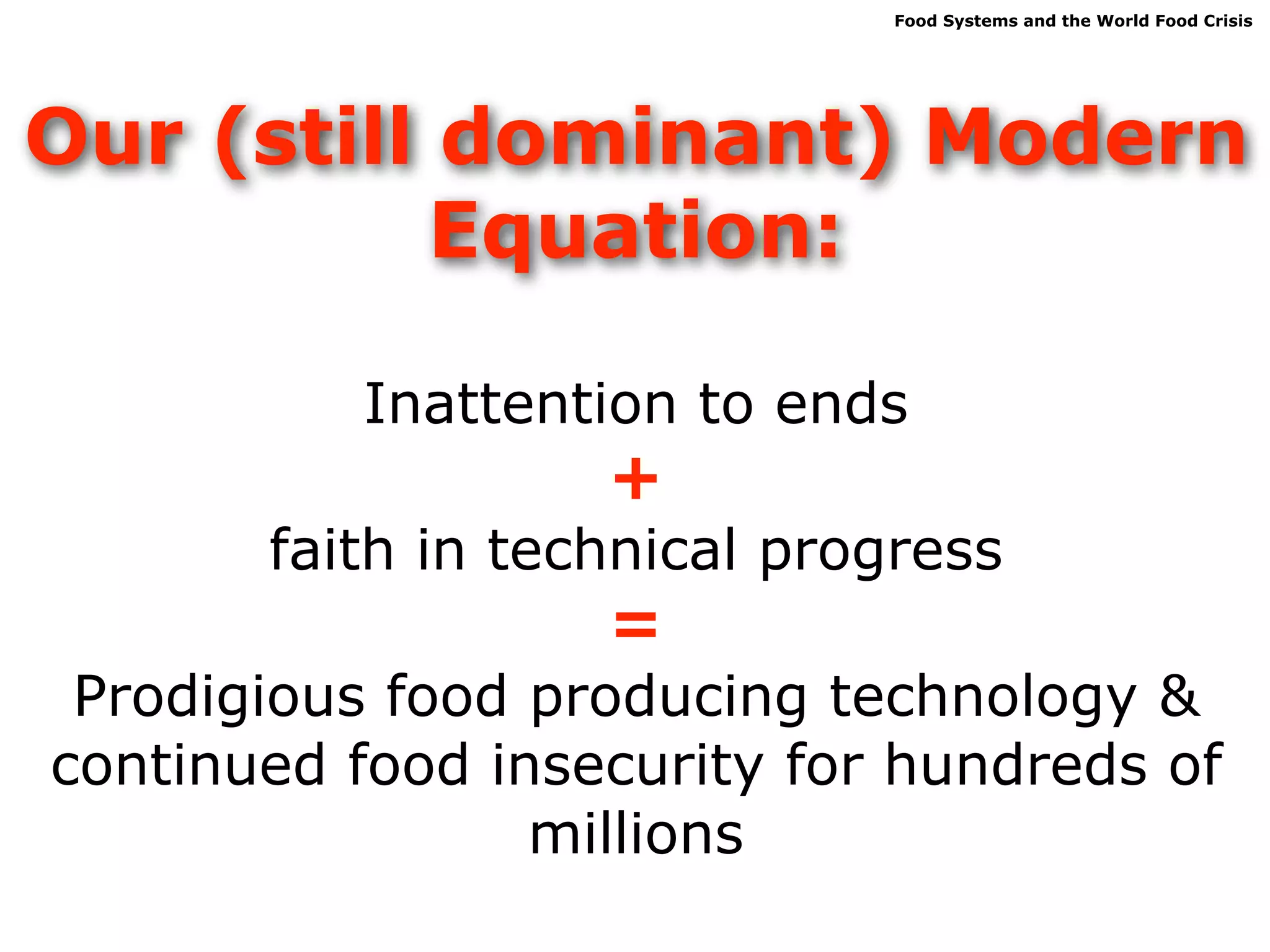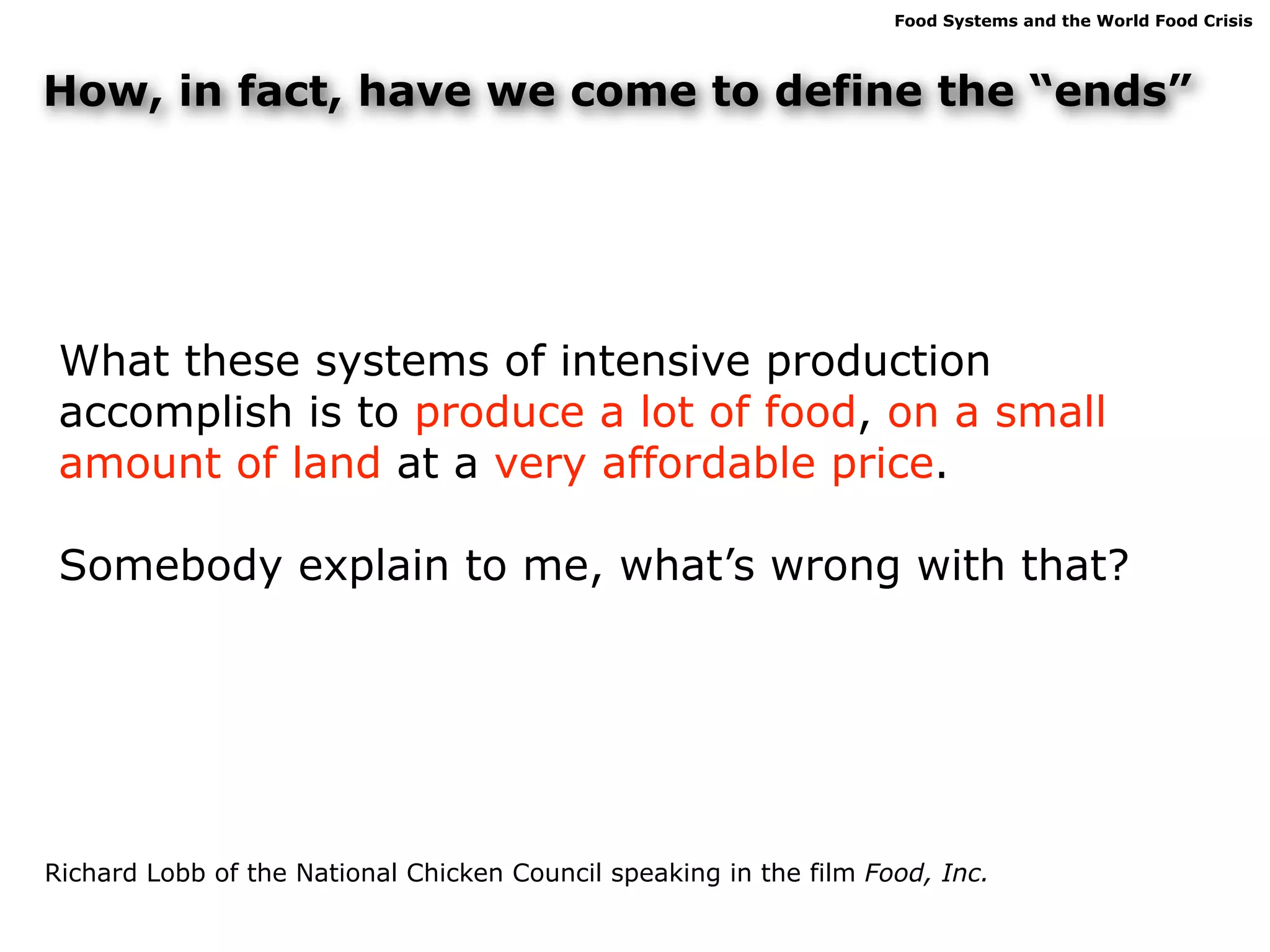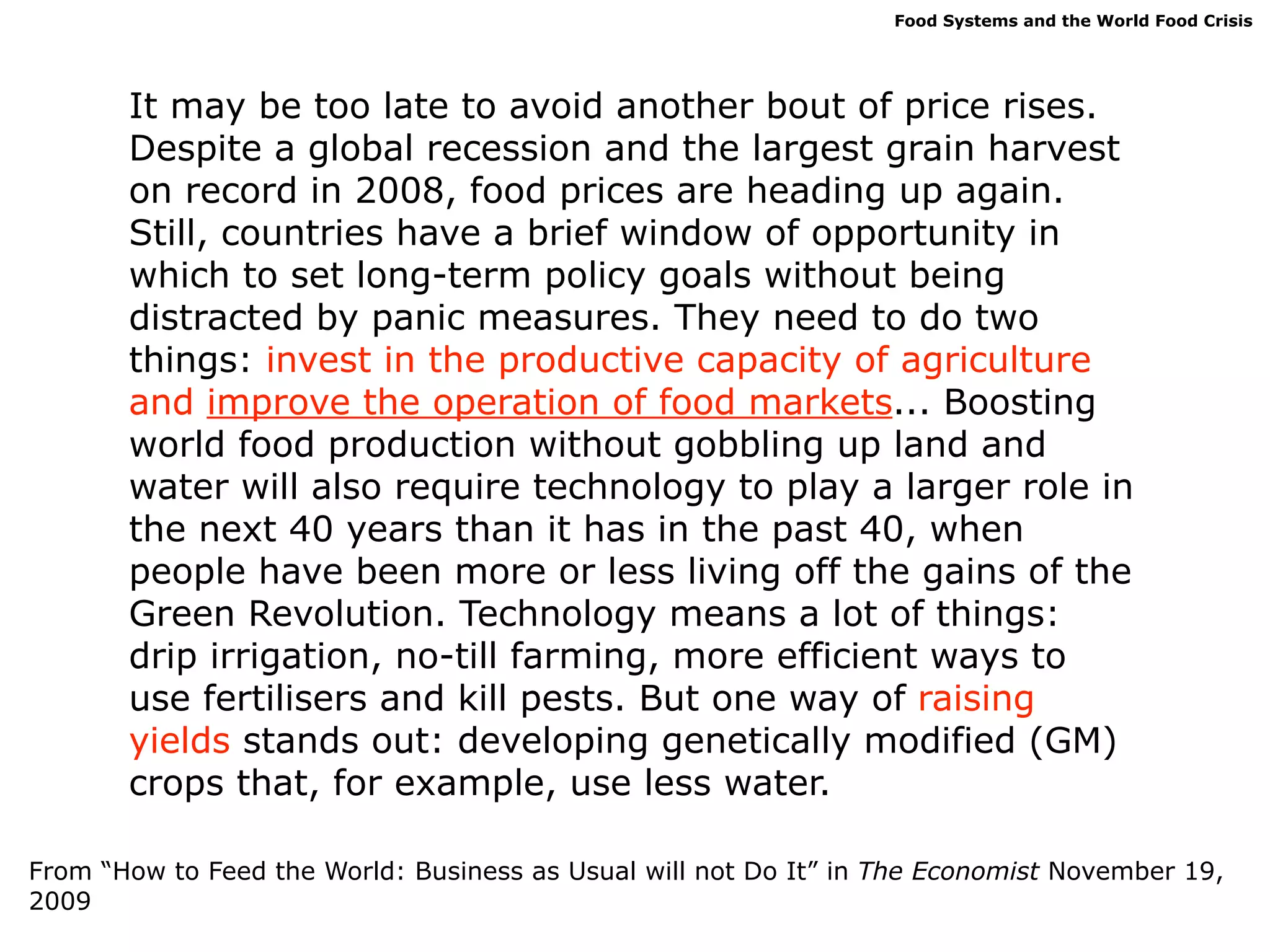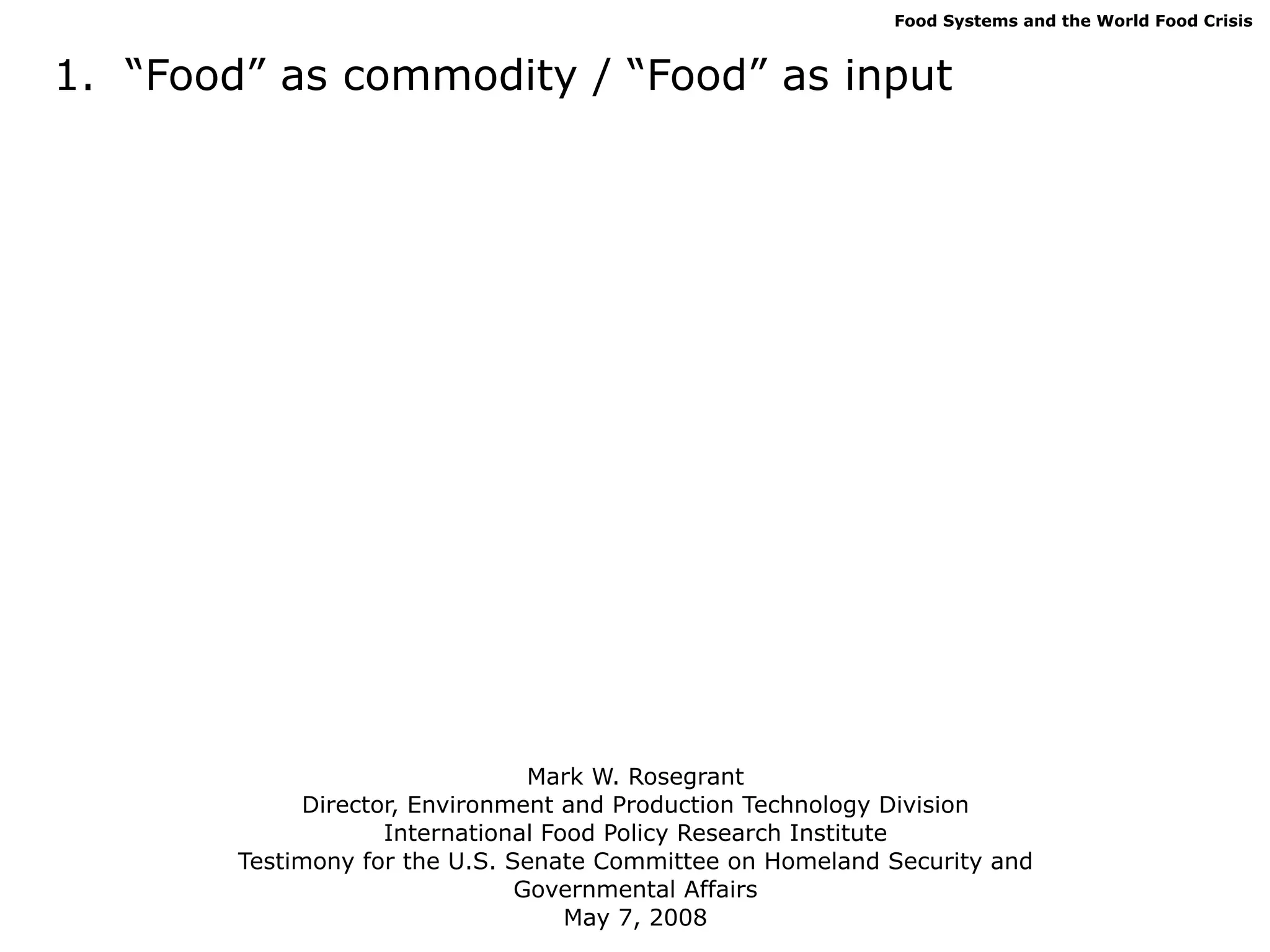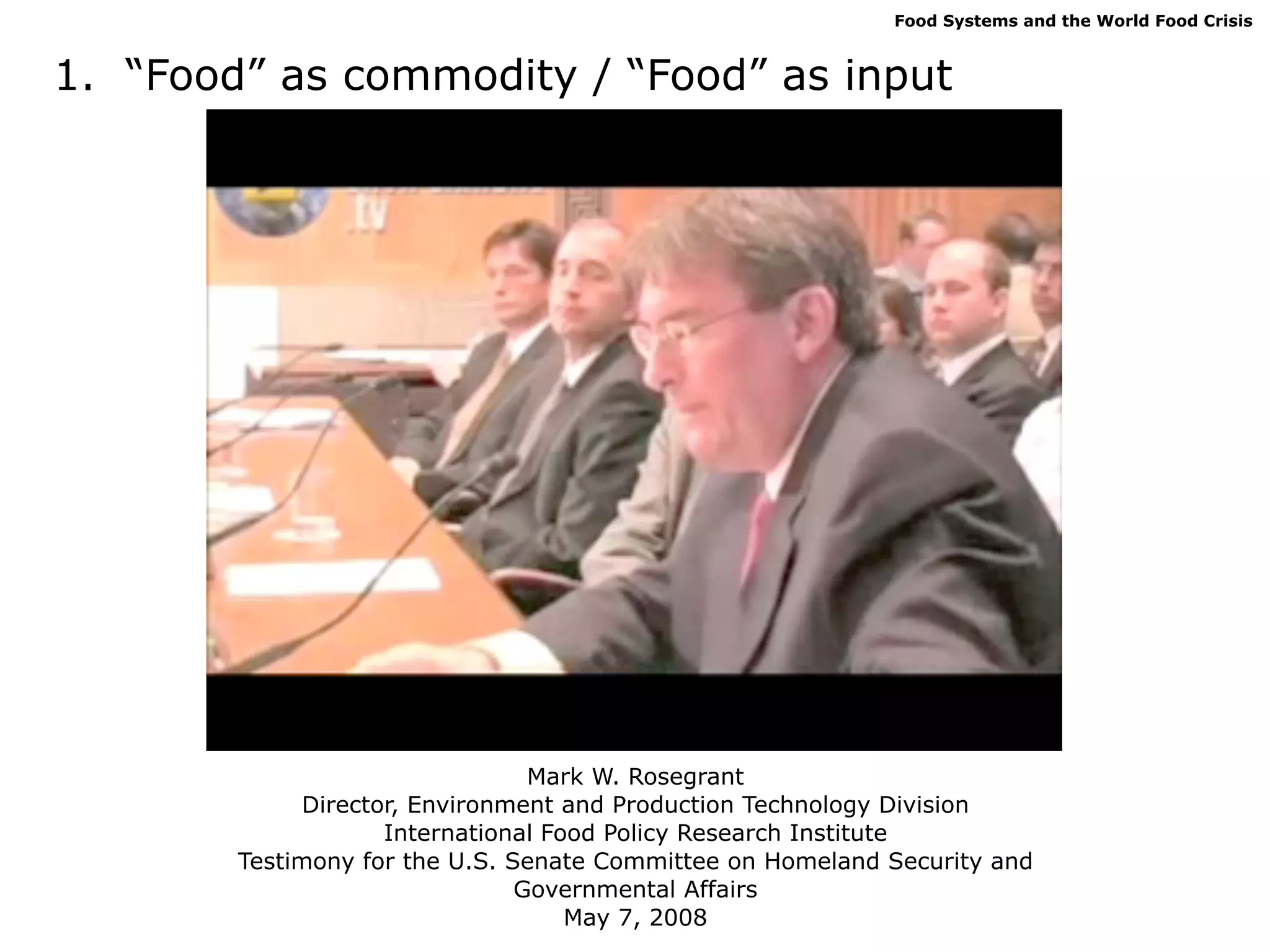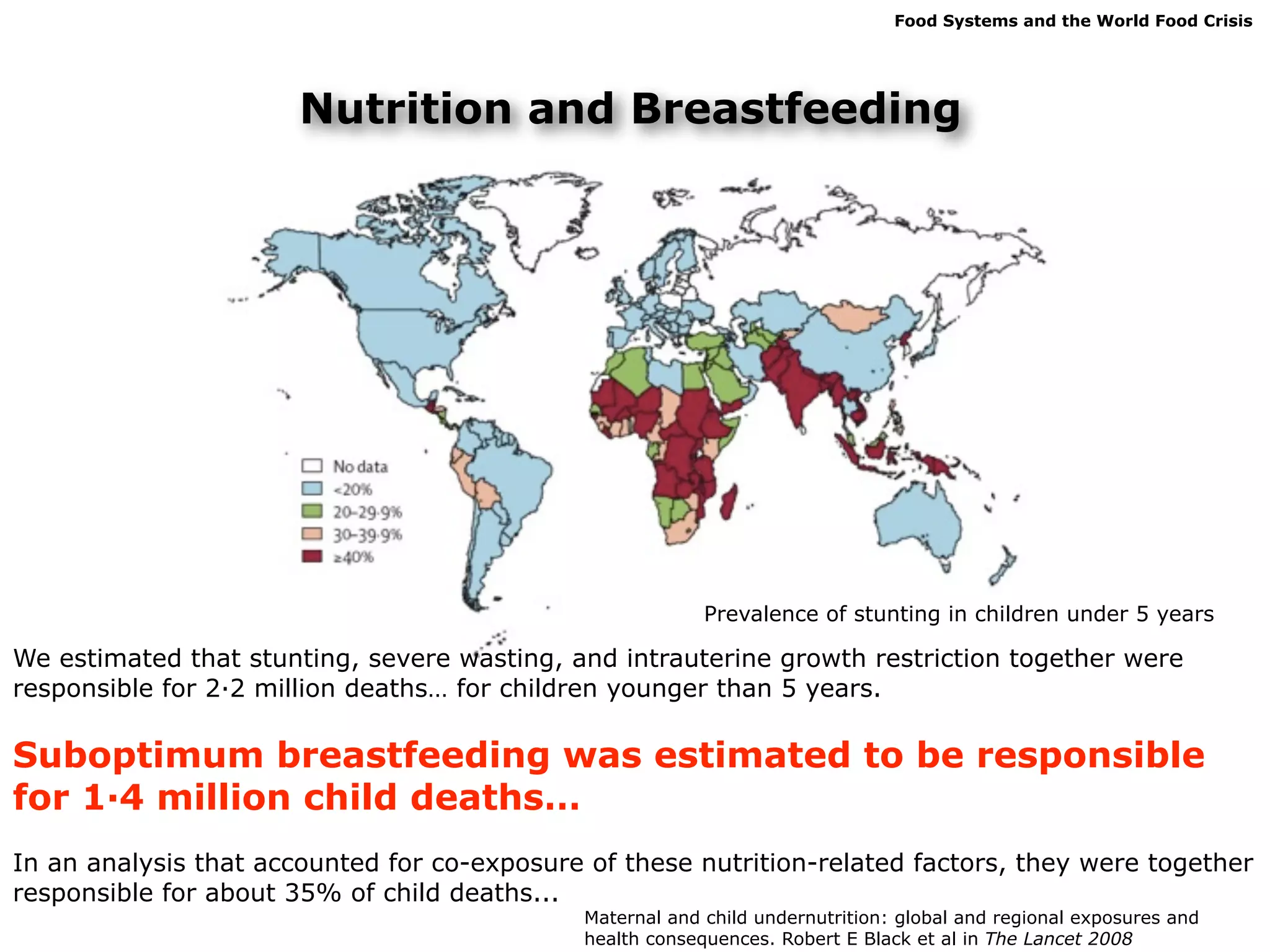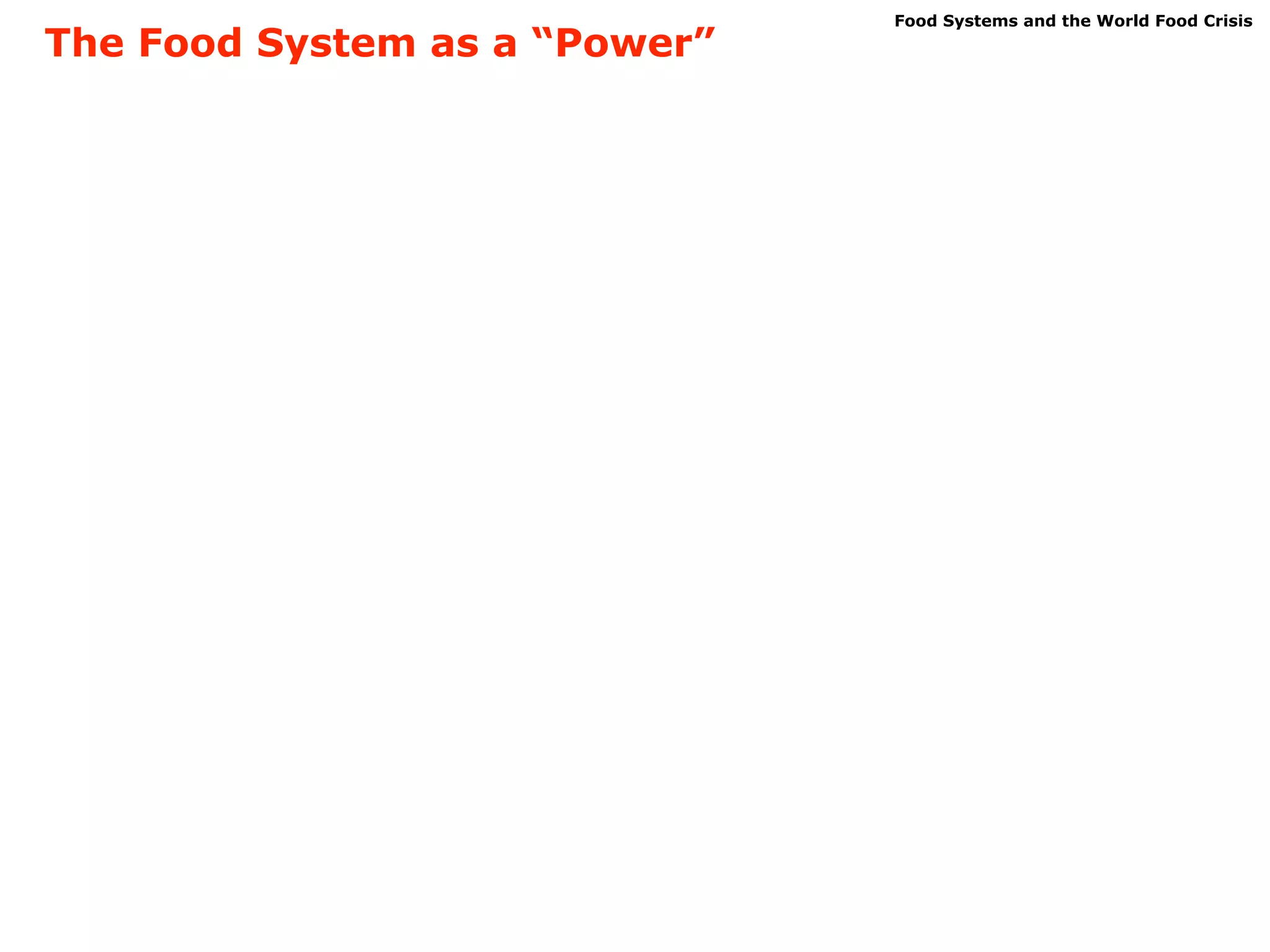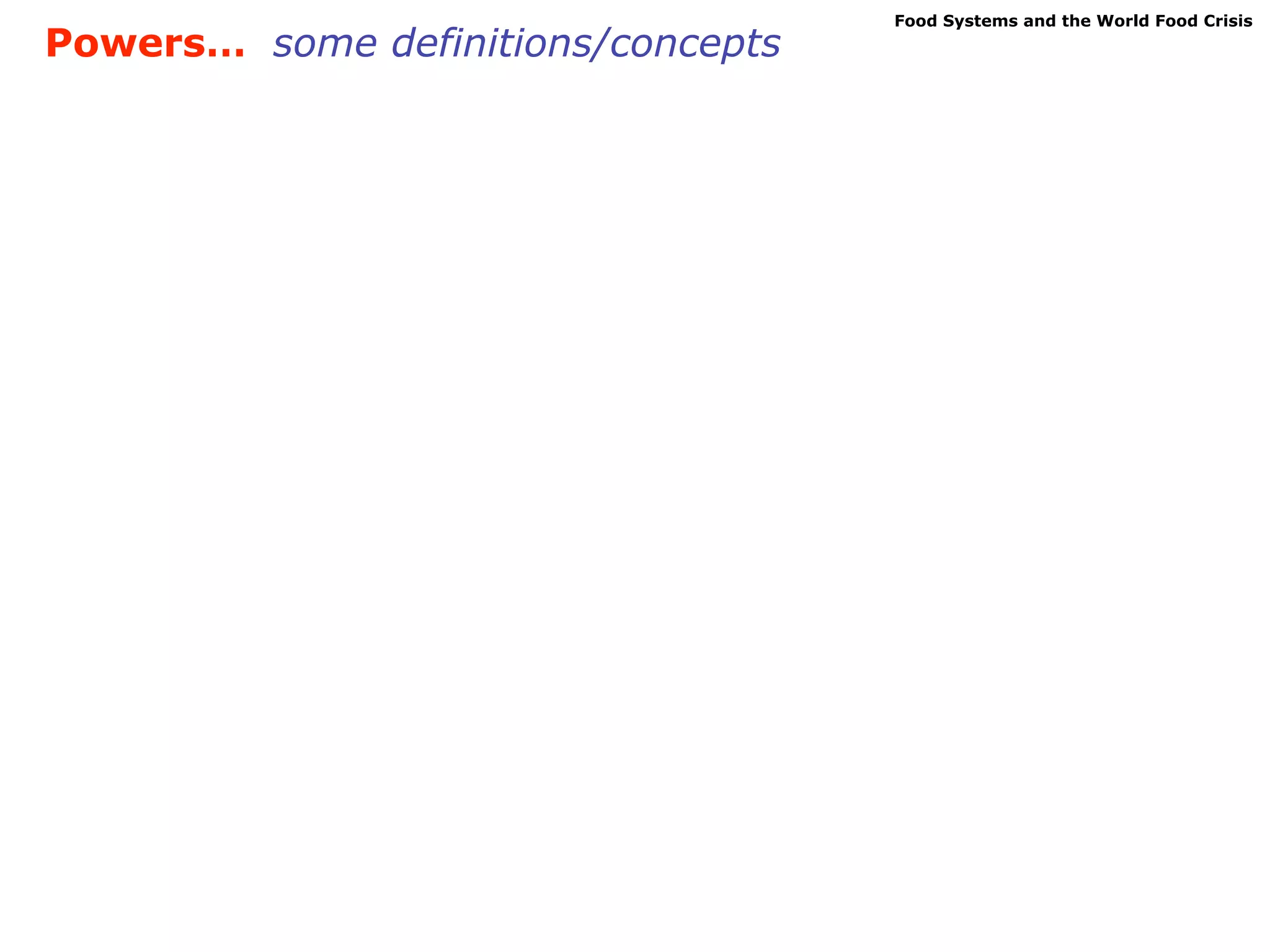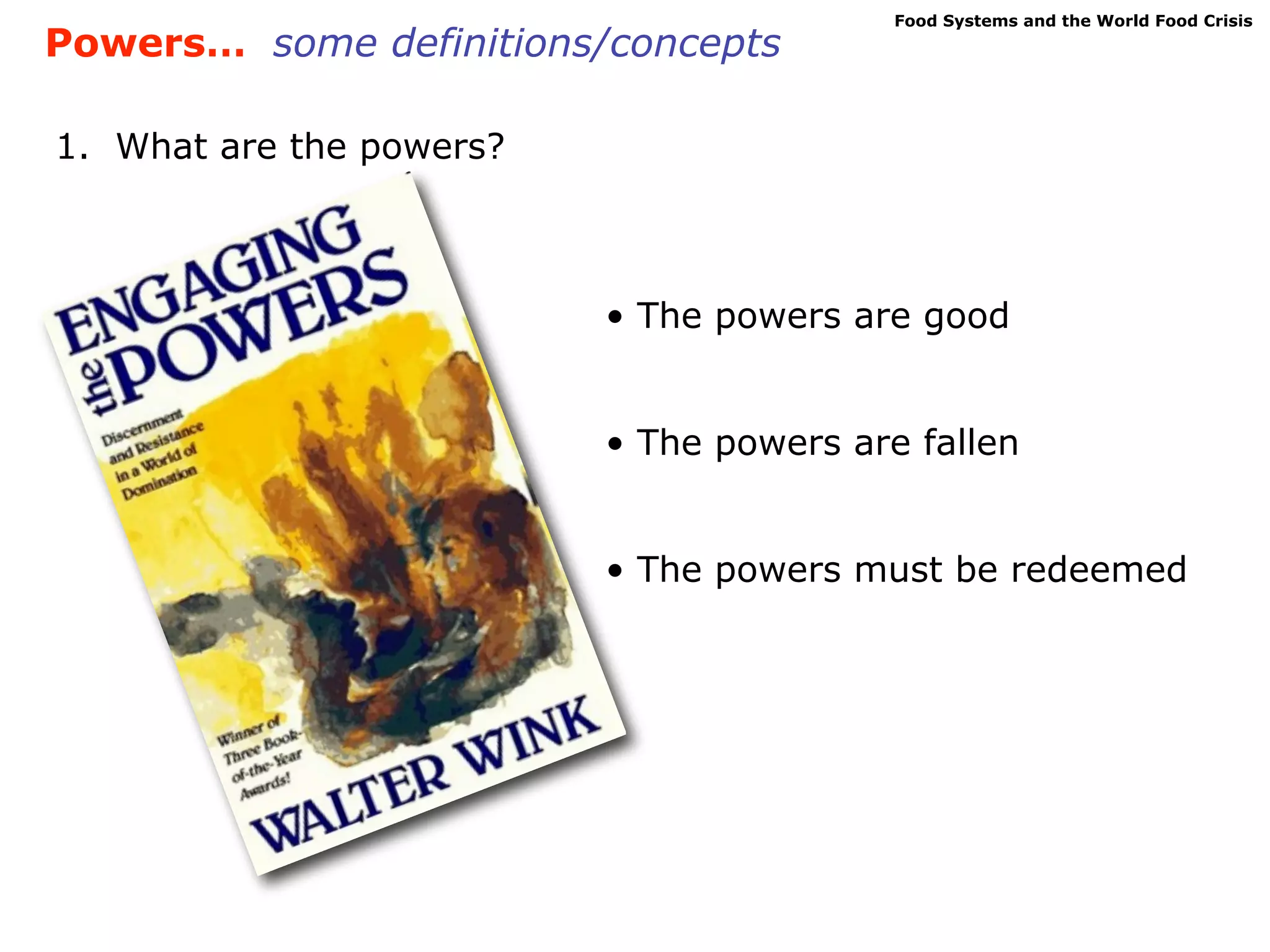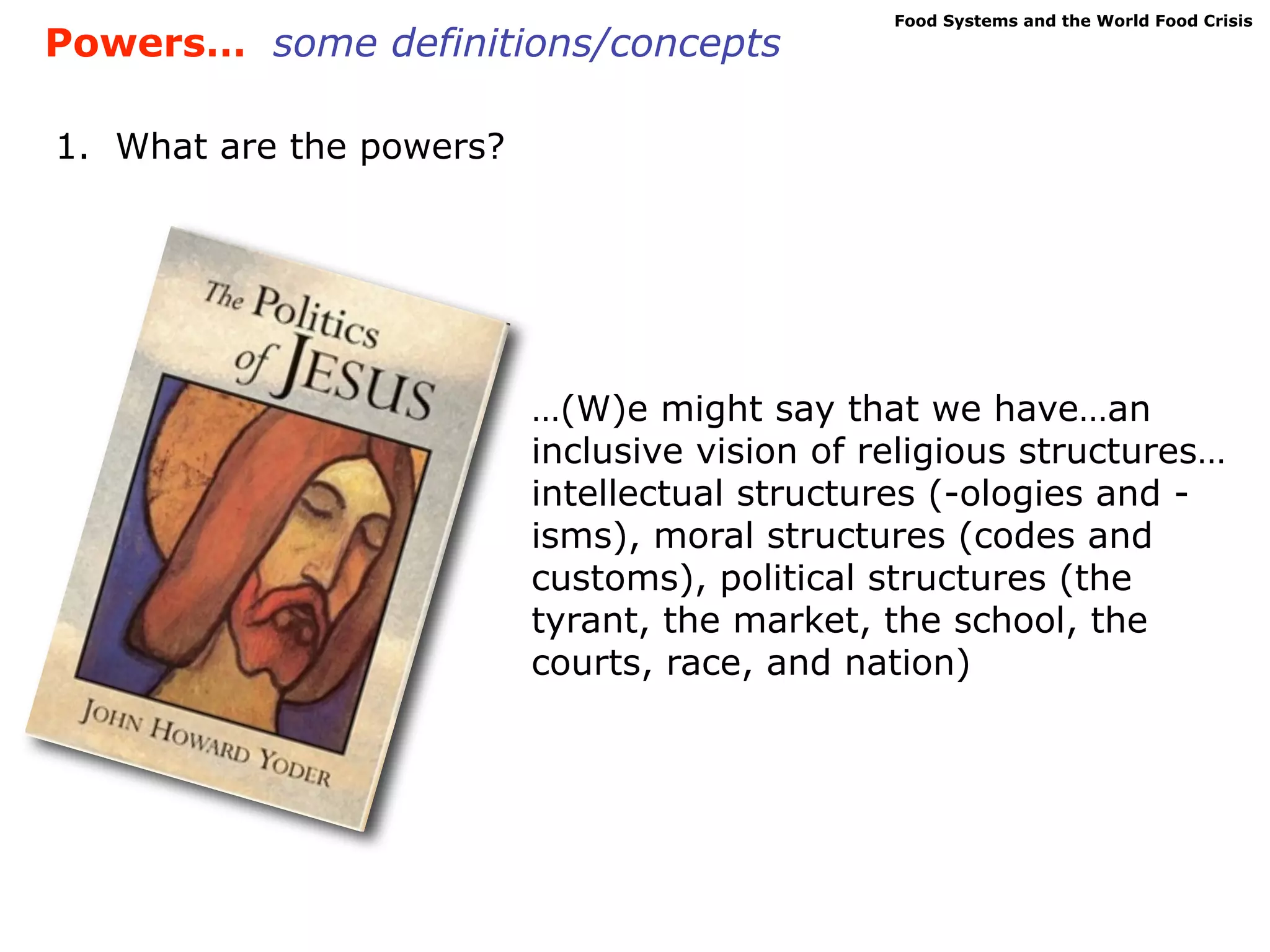The document discusses how modern society focuses too much on technological progress without considering its purpose or goals. As a result, hundreds of millions of people still face food insecurity despite advances in food production technology. The document critiques how society has become focused on means over ends, prioritizing constant progress for its own sake without deciding where it is headed collectively. This has led to a "technique-focused" society where people feel disconnected despite being hyper-connected through technology.


